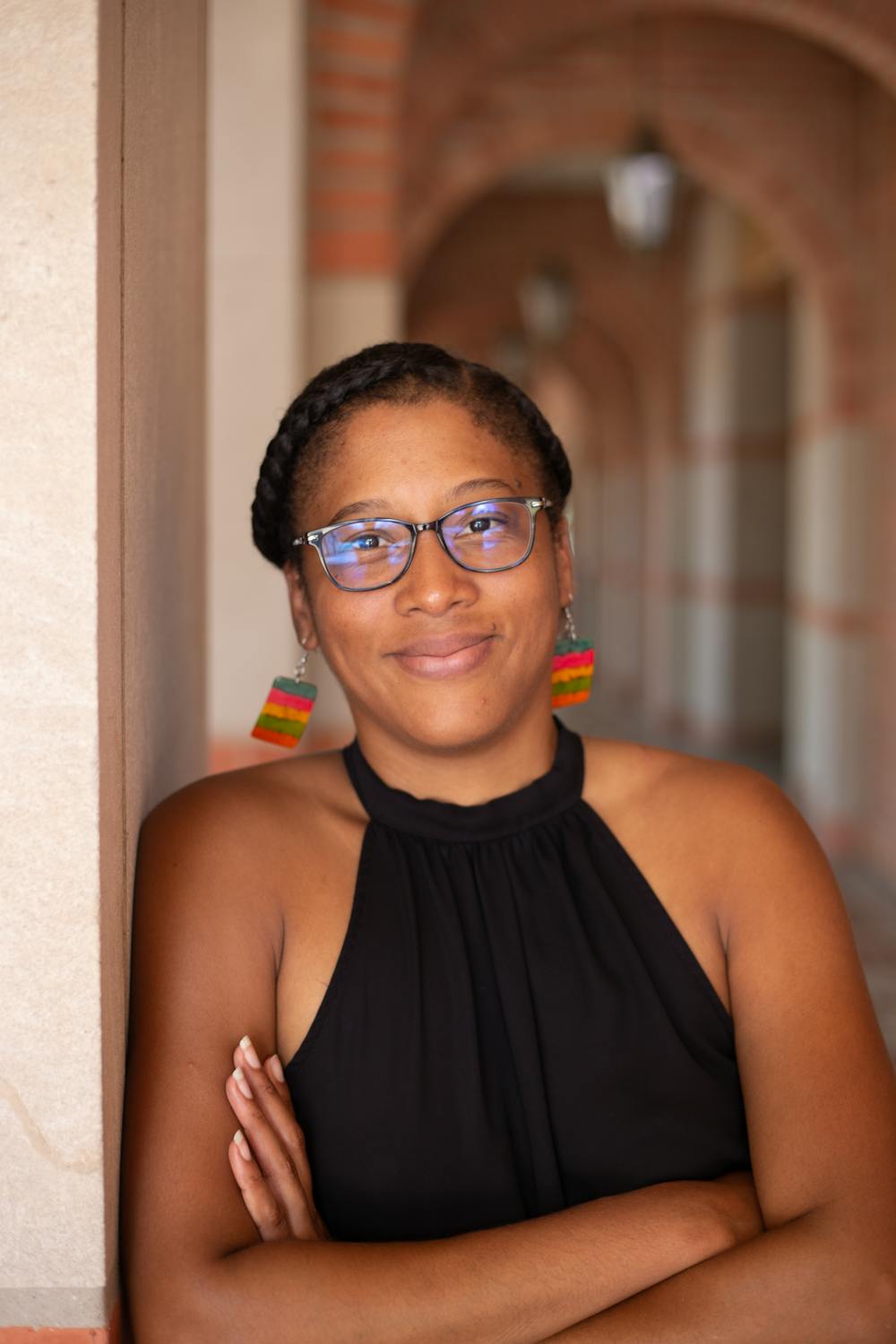Linsey Sainte-Claire wants to share her knowledge

Linsey Sainte-Claire left home at age 15. She moved from her native French Guiana to attend school in Paris, France in hopes of receiving a better education than she could get in the Caribbean.
“It was very tough, especially because it was not my choice. There is a false idea that studying in France will lead to bigger opportunities, and especially for parents of Afro descent,” Sainte-Claire, an assistant professor in the Modern and Classical Literatures and Cultures department, said. “My mom decided to send me to France after my first year of high school, because she believed that … having a degree that says that it was given by someone in Paris would have a higher value than a degree from French Guiana.”
With her Parisian degree, Sainte-Claire went on to attain her doctorate from the University of Chicago. Before Rice, she taught at Davidson College and Middlebury College.
At Middlebury, she was named a Public Humanities Lab Initiative Fellow and given the opportunity to create a public-facing project and accompanying seminar. Sainte-Claire taught a class titled “Education in the Caribbean.”
“I was able to ask students to create two book pages that will help students from the Caribbean relate to what we were learning,” Sainte-Claire said. “I wanted to make sure that [Caribbean students’] learning was not focused only on the western world, but that their cultural setting and identity was also reflected in those book pages.”
Sainte-Claire said that this project, along with much of her own writing and research, was inspired by her personal experience with education in French Guiana. French Guiana is one of France’s five overseas departments, along with Guadeloupe, Martinique, Mayotte and Réunion.
Departments are roughly analogous to states in the U.S. Overseas departments are represented in France’s national governing bodies and are subject to the same laws and regulations as mainland departments, according to Encyclopedia Britannica. Education in France’s overseas departments is based around the curriculum used in mainland France, which typically includes little to no information about the history, geography or culture of the departments.
“[The project] was very much inspired by my own experience as someone growing up in an overseas department of France, but only [studying] the history of mainland France rather than its overseas departments,” Sainte-Claire said. “As someone who is originally from French Guiana [and] moved to France when she was 15 … it was really important for me to study the political facets and history of my people.”
Originally a farming colony for sugar plantations, French Guiana had a large population of enslaved Africans until 1794, when France abolished slavery in its overseas colonies. It was later used as a penal colony, then as a home for resettled Hmong and Maroon refugees from Laos and Suriname, respectively. Brazilian and Haitian economic migrants also make up a significant portion of the population, as do indigenous groups that inhabited the area prior to French colonization, according to the CIA World Factbook.
With its multicultural roots, French Guiana has become quite different from mainland France, even developing its own dialect of Creole French.. Sainte-Claire says it is this varied, global history of the Caribbean that is often what draws students to her classes.
“I've had students who have ties to Africa or the African diaspora who want to learn more about the history and the political settings and experiences of African people,” Sainte-Claire said. “I also have students who are just curious to know more about this history that they've never been exposed to.”
For Sainte-Claire, the importance of learning a language lies not just in the language itself, but in the lives of those who speak it.
“You can build a community or at least have a sense of a community when you learn a language,” Sainte-Claire said. “Learning the language also allows you to get a deeper insight into another culture that you may not know.”
By extension, Sainte-Claire applies the same philosophy to her students. Sainte-Claire sees the classroom as a safe place to have cultural conversations together with her students.
“For students who are coming to my classes … what I want them to know is that we're all coming into the classroom as human beings,” Sainte-Claire said. “We're all coming to share knowledge.”
More from The Rice Thresher

New student center to ‘complete’ central quad
Breezeways, arches and outdoor seating will abound at the Moody Center Complex for Student Life set to break ground May 8. The 75,000-square-foot complex was designed by architecture firm Olson Kundig and has an expected completion date of fall 2027.

Best study snacks to fuel your finals
Finals are creeping up on us, and that means hunting season for the best study snacks on and off campus. Below are some that are sure to see you through the most enigmatic paper prompts and puzzling practice questions.

Head over handlebars: a brief history of Beer Bike accidents
In the first heat of the women’s race in this year’s Beer Bike, Melissa Geng said she was biking faster than she ever had, adrenaline pumping through her veins. All was going well, until she crashed into the fence of the alumni viewing area at the turn of her second lap.

Please note All comments are eligible for publication by The Rice Thresher.